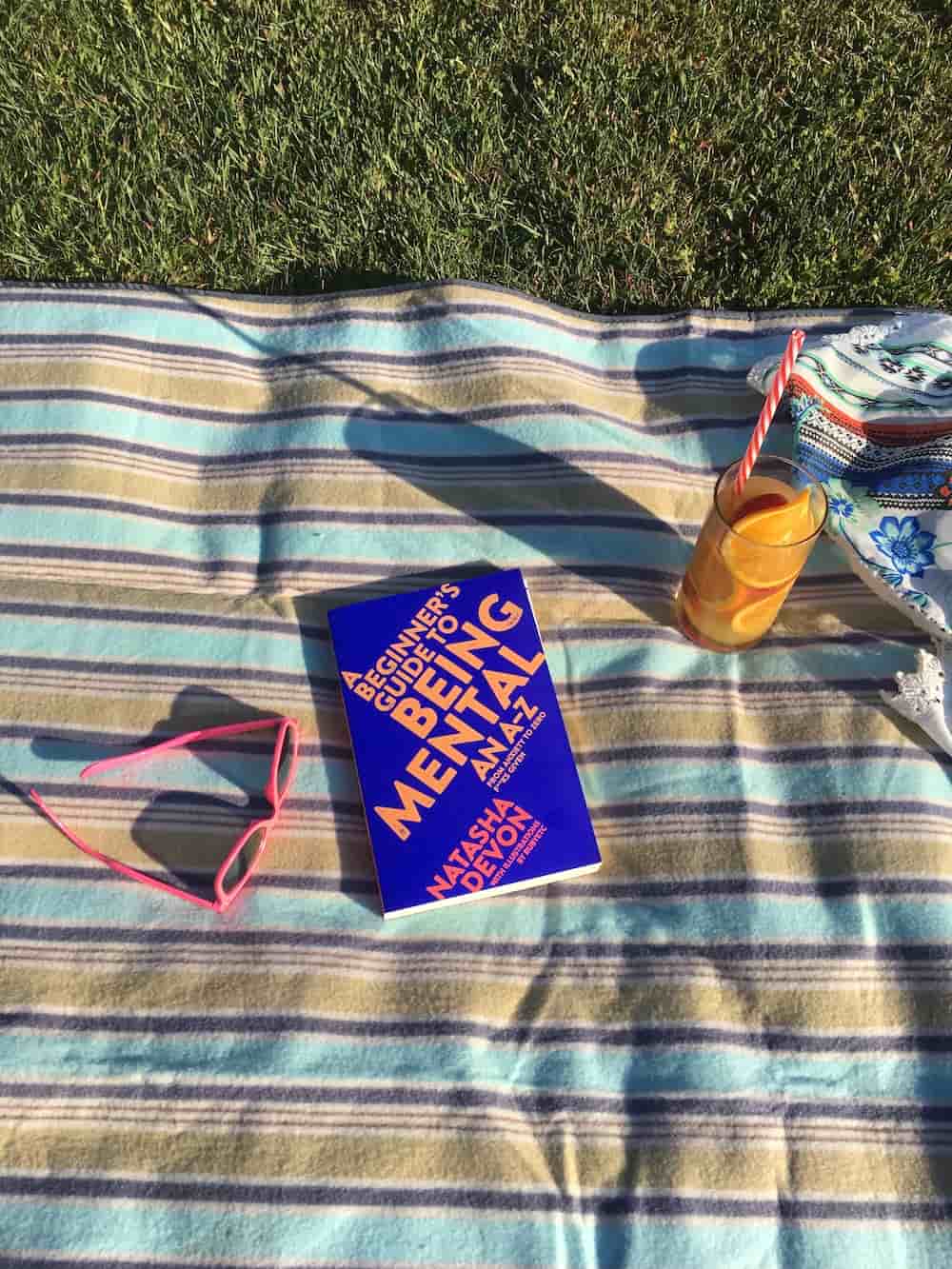Friendly, informative and oftentimes outright hilarious, A Beginner's Guide to Being Mental is a mental health guide for everyone
I’m on page two of Natasha Devon’s new book A Beginner’s Guide to Being Mental: An A-Z from Anxiety to Zero F--cks Given when I start to wonder how she knows me. We’ve only met in person once, we’ve spoken on the phone exactly once, and we’ve been involved in a handful of work-related email conversations on mental health. She can’t know me. And yet, there I am on page two, wondering how she got inside my head.
Deciding to address how binge-watching Black Mirror may have influenced me later, I realise that Natasha hasn’t hacked into my mind and had a look around, but rather determine that A Beginner’s Guide is incredibly relatable, honest and refreshing discussion on the mental health that we all have.
The book is formatted in a handy A-Z format, which means it’s one that you can dip in and out of, chapter by chapter, but one you probably won’t put down long enough to do that. Natasha somehow manages to feel like a friend sharing something she’s learned with you - her tone isn’t condescending, she doesn’t judge what you know or may not know - she’s not only helpful, but charming and relatable.
In ‘A is for Anxiety’, Natasha introduces the reader to Nigel - the name she has given to the “lump that lives in my throat”. She explains how giving a name and personality to her anxiety helped make it easier for her not to build ‘him’ up in her mind as something with total control over her mood and actions. Natasha explains the difference between anxiety (the emotion) and anxiety (the illness) in a scientific and factual, yet personal way. The chapter details common forms of anxiety disorder and, just as importantly as explaining what they are, underlines what they are not.
In ‘B is for Brain’, Natasha adeptly describes complicated neurological functions in a way that’s easy to understand but not dumbed-down. Her explanation of confirmation bias is fascinating, factual and not at all typical fluff you sometimes find in self-help books.
‘H is for Happiness’ is another fantastic chapter, as Natasha proposes that happiness is not what we most commonly attribute it to being - brief, fleeting moments of euphoria - and instead as an “absence rather than a presence of feeling”.
‘T is for Therapy’ discusses the ins and outs of counselling, types of therapy approaches, NHS and private therapy, wait times, session prices and length, and more. (Full disclosure: the chapter features a quote from me, from my aforementioned phone conversation with Natasha).
My favourite chapter is the final chapter: 'Z is for Zero F--ks Given (or the art of having high self-esteem)’. Natasha asked five people with high self esteem to share the secret behind their confidence, giving the reader a fascinating look into the sometimes surprising reasons behind it. Spoiler alert: They weren’t just born with it. Natasha also shares her own ‘lightbulb’ moment of self-esteem, which is honest and inspiring.
At the end of it all, I can’t help but return to the page two moment where I thought Natasha was in my brain. Natasha was examining how we, as English-speaking people, have limited words to describe phenomena we experience regularly yet don’t encounter on a day-to-day basis. A Beginner’s Guide to Being Mental: An A-Z from Anxiety to Zero F--ks Given has left me with one: Those things you’re sure that only you think and make you wonder why you are so weird and why can’t it be easy for you like everyone else? Well, guess what? You’re not alone. Natasha's there, too.
People familiar with mental health will love ...
Natasha’s relatable stories and coping mechanisms that work for her.
People who are unfamiliar with mental health will love ...
Learning more about their own mental health - something we all have!
A Beginner’s Guide to Being Mental: An A-Z from Anxiety to Zero F--ks Given
Written by Natasha Devon MBE
Available from 17 May 2018
(RRP £12.99)
Photo by Zulmaury Saavedra on Unsplash



Comments